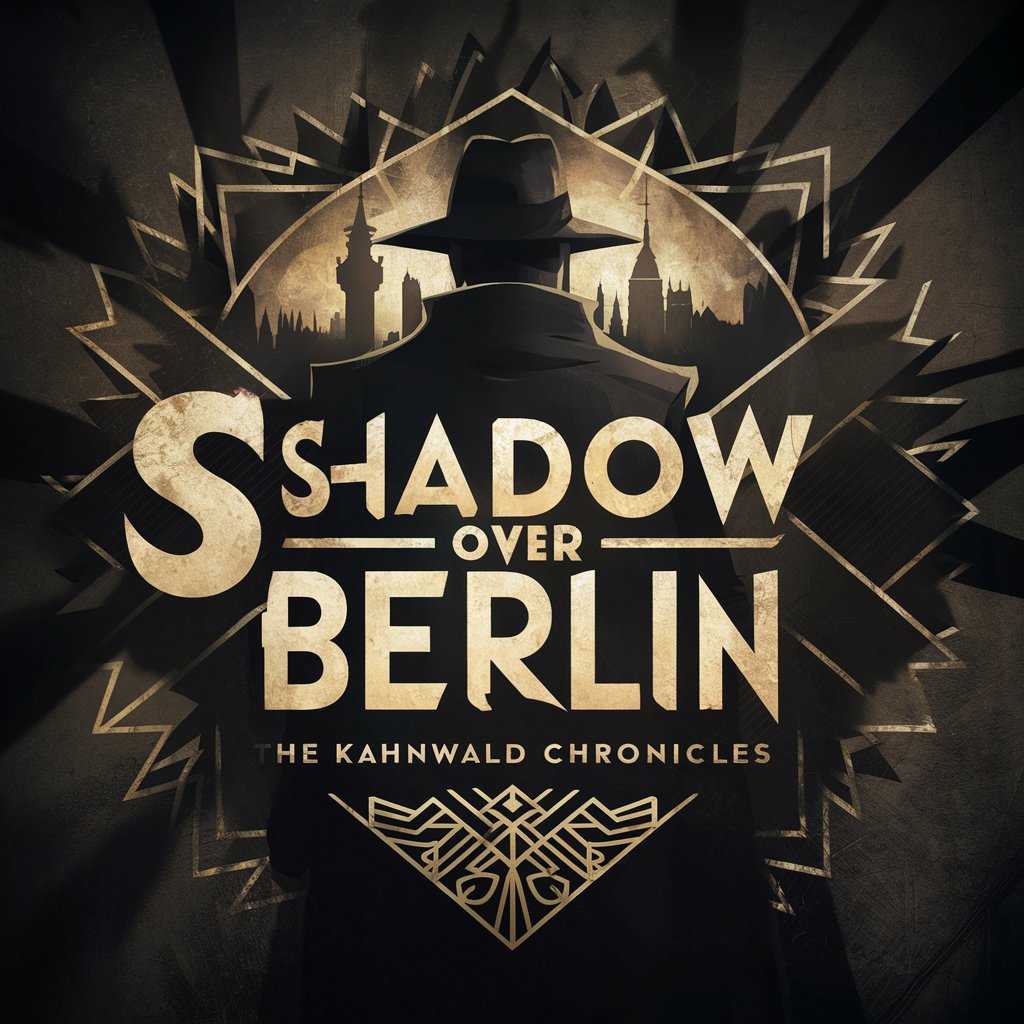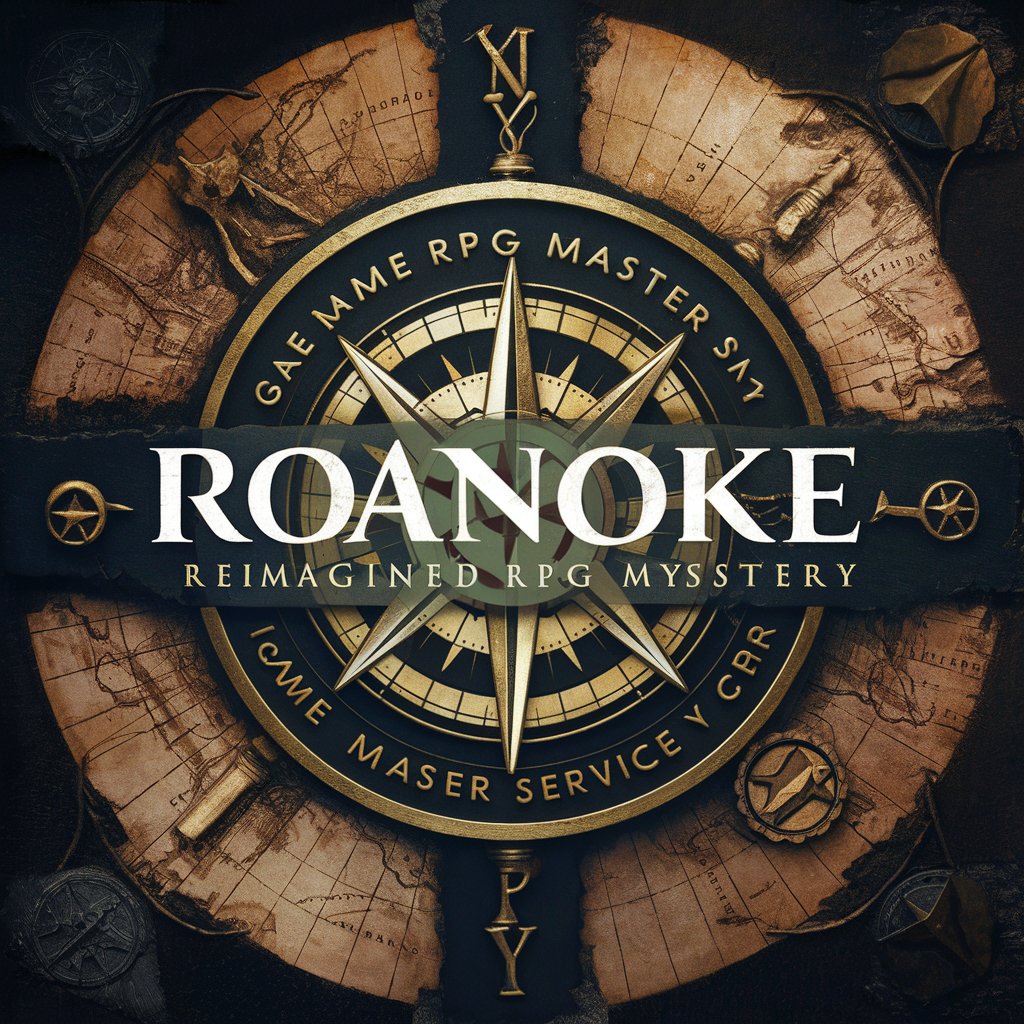7 GPTs for Historical Mystery Powered by AI for Free of 2025
AI GPTs for Historical Mystery are sophisticated artificial intelligence tools designed to assist in exploring, understanding, and creating content related to historical mysteries. Leveraging the power of Generative Pre-trained Transformers, these tools analyze vast amounts of historical data and texts to generate insights, stories, or solutions pertaining to unsolved historical events, figures, and phenomena. Their relevance lies in their ability to process and interpret historical language, context, and nuances, making them invaluable for uncovering and presenting new perspectives on past mysteries.
Top 7 GPTs for Historical Mystery are: Shadow Over Berlin: The Kahnwald Chronicles,Sherlock Holmes: Whispers in Literature,Mystery at Tahoe Forest: The UFO Enigma,盗墓笔记,Roanoke Reimagined: The RPG Mystery,Mortem in Abbatia Horror Game,Amsterdam Enigma: Shadows of the Canal
Shadow Over Berlin: The Kahnwald Chronicles
Solve mysteries with AI-powered visuals

Sherlock Holmes: Whispers in Literature
Unravel mysteries with AI-powered narratives.

Mystery at Tahoe Forest: The UFO Enigma
Unravel mysteries with AI-powered investigations.

盗墓笔记
Unraveling the secrets of ancient tombs with AI.

Roanoke Reimagined: The RPG Mystery
Unravel history with AI-powered mystery

Mortem in Abbatia Horror Game
Uncover dark secrets with AI-powered storytelling.
Amsterdam Enigma: Shadows of the Canal
Solve mysteries, shape history.

Distinctive Attributes and Functions
AI GPTs for Historical Mystery offer a range of unique features tailored to the exploration of historical enigmas. These include advanced natural language processing capabilities for understanding and generating historical narratives, adaptability to various complexity levels from basic inquiries to deep analysis, and specialized functionalities such as language translation for ancient texts, technical support for historical research, and the ability to conduct web searches for the latest scholarly discussions. Furthermore, these tools can generate images related to historical contexts, and offer data analysis features to detect patterns or anomalies in historical records.
Who Benefits from Historical Mystery AI Tools
The primary beneficiaries of AI GPTs for Historical Mystery include history enthusiasts, academic researchers, authors of historical fiction, and educators. These tools are accessible to individuals without programming backgrounds, offering intuitive interfaces for exploring historical mysteries. Simultaneously, developers and professionals in the field of historical research can leverage these tools' advanced customization options for deeper investigation or integration into existing digital humanities projects.
Try Our other AI GPTs tools for Free
Character-Driven
Discover how Character-Driven AI GPTs revolutionize storytelling and character creation, offering tailored solutions for writers, developers, and creatives.
Team Formation
Discover how AI GPTs for Team Formation can transform your team-building process, leveraging advanced AI to optimize team dynamics and project outcomes.
Cooking Timings
Discover how AI GPTs for Cooking Timings can transform your kitchen experience with accurate, adaptable, and accessible culinary advice.
Launch Strategies
Revolutionize your launch strategy with AI GPT tools, designed to optimize planning, execution, and analysis for a successful market introduction.
Electronics Hacking
Explore the frontier of electronics hacking with AI GPTs. Tailored for hobbyists and professionals alike, these tools revolutionize project development through advanced AI capabilities.
Crafting Ideas
Discover how AI GPTs for Crafting Ideas revolutionize the creative process with tailored solutions, enhancing innovation and streamlining ideation across various domains.
Expanding the Horizon with AI in History
AI GPTs for Historical Mystery not only offer a new lens to view and understand the past but also integrate seamlessly into various sectors, enhancing research, education, and content creation. Their user-friendly interfaces and the possibility of integration into existing systems or workflows underscore their versatility and potential to revolutionize the field of historical investigation.
Frequently Asked Questions
What exactly are AI GPTs for Historical Mystery?
They are AI-driven tools that use Generative Pre-trained Transformers to analyze, understand, and generate content related to historical mysteries, leveraging vast data to offer new insights.
Can these tools translate ancient languages?
Yes, one of the core features includes the capability to translate and interpret ancient languages, making historical texts more accessible.
Do I need programming skills to use these tools?
No, these tools are designed to be user-friendly for those without coding experience, though they also offer customization options for those with programming skills.
How can authors of historical fiction benefit from these tools?
Authors can utilize these tools to generate accurate historical contexts, dialogue, and settings for their narratives, enhancing the authenticity of their work.
Are these tools useful for academic research?
Absolutely, they offer deep analytical capabilities, access to historical data analysis, and support for uncovering new insights into historical events and figures.
Can these tools generate historical images?
Yes, they can create images based on historical contexts, providing visual aids for research, education, or content creation.
Is there technical support available for these tools?
Yes, technical support is often provided to assist users in navigating complex features or integrating the tool into their projects.
Can these tools be integrated into existing systems?
Yes, with programming expertise, they can be adapted and integrated into existing digital humanities projects or educational platforms.